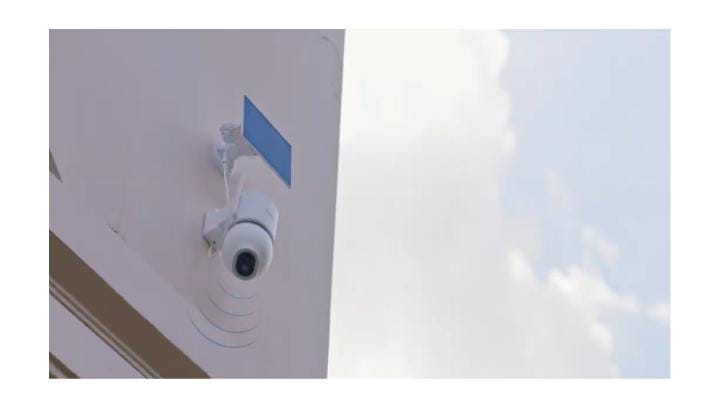When it comes to securing your property, having the right security camera system is essential. As technology advances, the options available for home and business security have expanded. Among the various choices, solar powered security cameras and traditional wired or battery-powered systems stand out. In this article, we’ll compare aosu solar powered security cameras with traditional systems to help you determine which is best for your needs.
What Are Solar Powered Security Cameras?
Solar powered security cameras are an innovative solution that relies on solar energy to function. These cameras are equipped with built-in solar panels that charge their internal batteries, ensuring continuous surveillance without the need for external power sources. aosu solar powered security cameras are one of the leading products in this category, offering a sustainable and cost-effective solution for property protection. These cameras are ideal for both residential and commercial use, providing reliable monitoring without the hassle of complex wiring or constant battery changes.
How Do Traditional Security Systems Work?
Traditional security systems, on the other hand, are typically either wired or battery-powered. Wired systems require a connection to your property’s electrical grid, while battery-powered systems need regular battery replacements to maintain operation. These systems often involve professional installation, especially if wiring is needed, and they are generally more limited in flexibility when it comes to positioning cameras.
Key Comparison: aosu Solar Powered Security Cameras vs. Traditional Systems
1. Cost-Effectiveness
One of the most compelling reasons to choose solar powered security cameras is the long-term savings. With aosu solar powered security cameras, you don’t need to worry about high electricity bills or frequent battery replacements. These cameras use solar energy to power themselves, making them an eco-friendly option that reduces both costs and environmental impact.
In contrast, traditional security systems often come with hidden costs, such as electricity bills and regular battery replacements. These expenses can add up over time, making traditional systems more expensive in the long run.
2. Installation Process
The installation process for aosu solar powered security cameras is straightforward and simple. These cameras are wireless and do not require any electrical wiring, making them easy to set up in any location with adequate sunlight. Whether you have a large residential property or a remote business location, solar powered security cameras offer flexibility in positioning.
Traditional systems, however, require professional installation, especially if electrical wiring is involved. This can be a time-consuming and expensive process, particularly if you need to install cameras in hard-to-reach areas or in locations without existing electrical outlets.
3. Environmental Impact
For homeowners and businesses looking to reduce their environmental footprint, aosu solar powered security cameras offer an eco-friendly alternative. By relying on solar energy, these cameras contribute to reducing the use of non-renewable resources and decrease carbon emissions. They also eliminate the need for disposable batteries, further reducing waste.
In contrast, traditional security systems consume electricity from the grid and often rely on disposable batteries, both of which contribute to higher energy consumption and environmental harm.
4. Reliability and Maintenance
aosu solar powered security cameras are designed to be low maintenance. Their built-in solar panels charge the batteries during the day, ensuring the cameras remain operational even during power outages. With no need for constant battery replacements, these cameras offer long-term reliability.
On the other hand, traditional systems can be less reliable. Battery-powered models require regular battery changes, and wired systems may experience downtime during power outages. Moreover, traditional systems often need more frequent maintenance due to their dependence on external power sources.
5. Durability and Weather Resistance
aosu solar powered security cameras are built to withstand various weather conditions, from rain to extreme temperatures. Their weatherproof design ensures that they continue to perform in any climate, providing 24/7 protection.
Traditional systems may also offer weather-resistant models, but they often require additional protective housing or wiring, which can increase installation complexity and cost.
6. Flexibility and Scalability
Another key advantage of solar powered security cameras is their scalability. Since they don’t rely on wiring or electrical outlets, aosu solar powered security cameras can be placed virtually anywhere, whether you’re protecting a single entryway or monitoring a large property. They’re perfect for locations with limited access to electricity or for expanding your surveillance coverage.
Traditional systems, however, are often more limited in terms of placement due to the need for a power source. This can restrict your ability to scale the system, especially in large or remote areas.
Which System Is Right for You?
Choosing between solar powered security cameras and traditional systems depends on your specific needs. If you’re looking for a cost-effective, eco-friendly, and flexible solution, aosu solar powered security cameras are the ideal choice. They are perfect for remote locations, large properties, and anyone who wants a low-maintenance, sustainable security system.
If you already have an existing wired infrastructure or if you need a more traditional security setup, a traditional system may be more suitable. However, for long-term savings, reliability, and flexibility, switching to aosu solar powered security cameras could be the best decision you make for securing your property.
To explore aosu’s solar powered security cameras, visit our homepage and discover the right model for your home or business.
